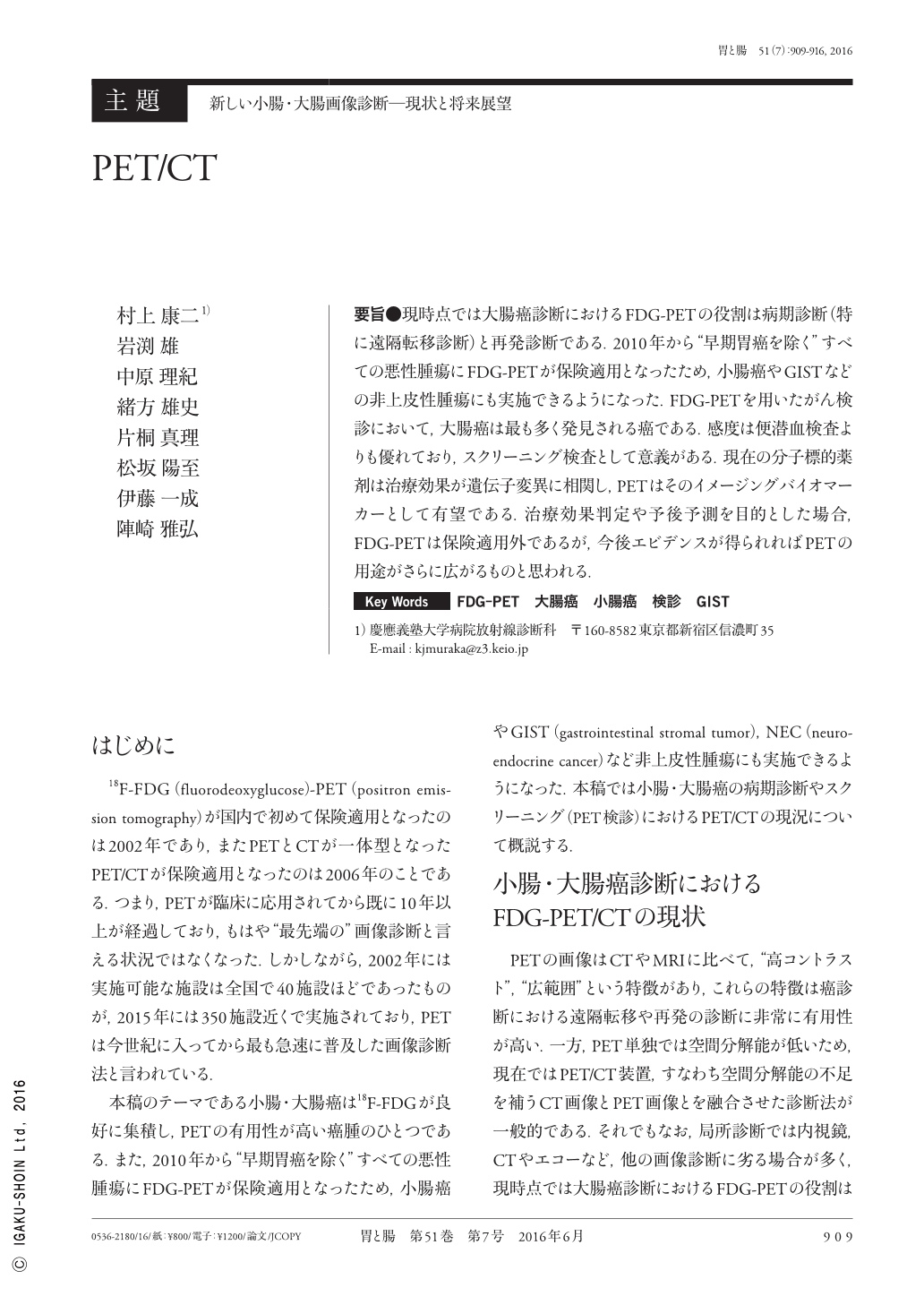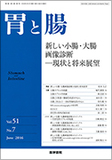Japanese
English
- 有料閲覧
- Abstract 文献概要
- 1ページ目 Look Inside
- 参考文献 Reference
要旨●現時点では大腸癌診断におけるFDG-PETの役割は病期診断(特に遠隔転移診断)と再発診断である.2010年から“早期胃癌を除く”すべての悪性腫瘍にFDG-PETが保険適用となったため,小腸癌やGISTなどの非上皮性腫瘍にも実施できるようになった.FDG-PETを用いたがん検診において,大腸癌は最も多く発見される癌である.感度は便潜血検査よりも優れており,スクリーニング検査として意義がある.現在の分子標的薬剤は治療効果が遺伝子変異に相関し,PETはそのイメージングバイオマーカーとして有望である.治療効果判定や予後予測を目的とした場合,FDG-PETは保険適用外であるが,今後エビデンスが得られればPETの用途がさらに広がるものと思われる.
Currently, FDG(fluorodeoxyglucose)-PET(positron emission tomography)is being used to determine the stage of colorectal cancer, particularly screening of distant metastases, and to detect recurrence. Because FDG-PET is being covered under reimbursement since 2010 for all malignancies except early gastric cancer, it can be used for small intestinal cancer and non-epithelial tumors. Colorectal cancer is the most frequently found cancer in cancer screening programs that include FDG-PET. FDG-PET is a useful modality for cancer screening because the sensitivity of FDG-PET is superior to that of the FOBT(fecal occult blood test). The response to molecular target therapy is closely correlated with gene mutations, and FDG-PET is suggested to be a promising imaging biomarker that reflects therapeutic effect.
Although therapeutic monitoring and response prediction by FDG-PET are not currently covered under reimbursement, the available applications of PET will expand if supportive evidence is collected in the near future.

Copyright © 2016, Igaku-Shoin Ltd. All rights reserved.


